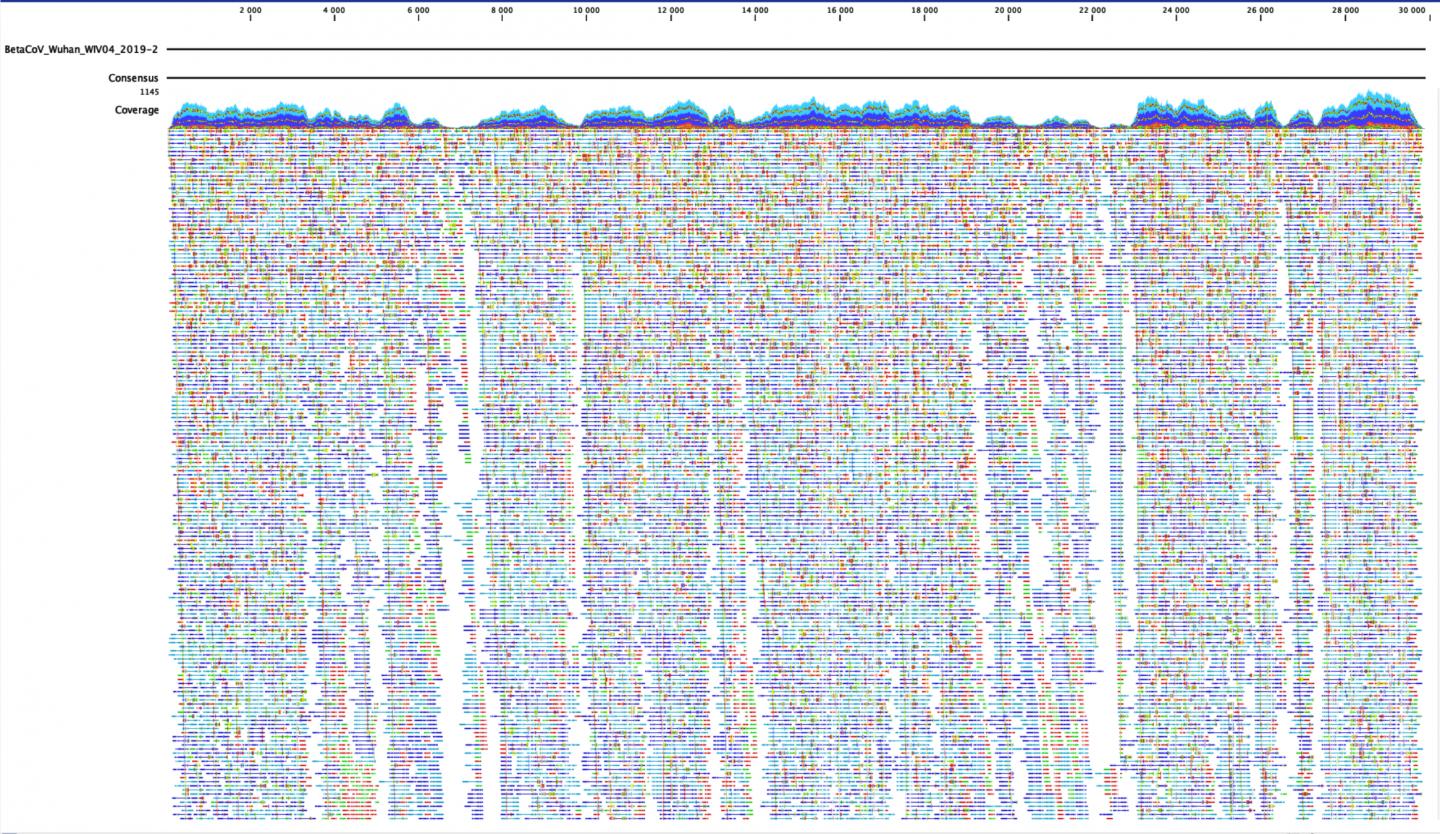January 31, 2020 -- On January 30, the Institut Pasteur became the first European institution to sequence the novel coronavirus (2019-nCoV) since the outbreak began in December 2019. Institut Pasteur researchers used its Mutualized Platform for Microbiology (P2M) sequencing platform to confirm the presence of 2019-nCoV in three samples from suspected cases in France.
As the coronavirus spreads around the globe and continues to pose a threat to public safety, scientists are working to keep pace with the spread of the virus in their own countries. Sequencing technologies have emerged as a key weapon in defining the genome of the new virus so that diagnostic tests can be developed to detect it -- and, hopefully, stop the spread of infections.
The Institut Pasteur researchers shared a timeline of how they sequenced the virus and confirmed its presence in France.
December 2019 through January 12, 2020
Viral pneumonia of unknown etiology broke out in Wuhan, China. On January 9, 2020, Chinese health officials announced the discovery of a novel coronavirus (2019-nCoV) and confirmed that it was responsible for the pneumonia cases. By January 12, the Chinese authorities shared full sequencing of the coronavirus genome.
Friday, January 24, 2020
Late in the morning on January 24, the Institut Pasteur received samples of three suspected cases of coronavirus from two patients in Paris and one in Bordeaux. Analysis of these samples confirmed the novel coronavirus, according to Sylvie Behillil, PhD, deputy director of the National Reference Center for Respiratory Viruses (CNR) at the Institut Pasteur.
That same day, a group of scientists from the CNR launched the sequencing process for the viral genome. Sequencing began on Monday and was completed by Tuesday evening. Eight researchers and two P2M platforms were used for the analysis.
Thursday, January 30, 2020
"We performed data analysis during the night from Tuesday to Wednesday, then corroborated the results on Wednesday with counter analysis," explained Vincent Enouf, PhD, deputy director of CNR, in a statement. "The whole sequence was confirmed in just three days."
The viral sequences were identical in all three samples, and the scientists proposed that of the Paris patients, one must have infected the other. The genome sequences were submitted to the Global Initiative on Sharing All Influenza Data (GISAID) platform online, which was initially developed to share sequences and monitor the genetic evolution of influenza viruses. There is now a special "coronavirus" section on the website where the scientific community can work together to identify and develop treatments faster.

"Around 20 other sequences of the novel coronavirus genome have been obtained worldwide, and if we compare them with ours, we can see that they are all very close; there is not much diversity in the viruses analyzed, which suggests that coronavirus 2019-nCoV did not need to mutate in order to adapt and spread," Enouf said.
Do you have a unique perspective on your research related to infectious disease or genomics? Contact the editor today to learn more.
Copyright © 2020 scienceboard.net






